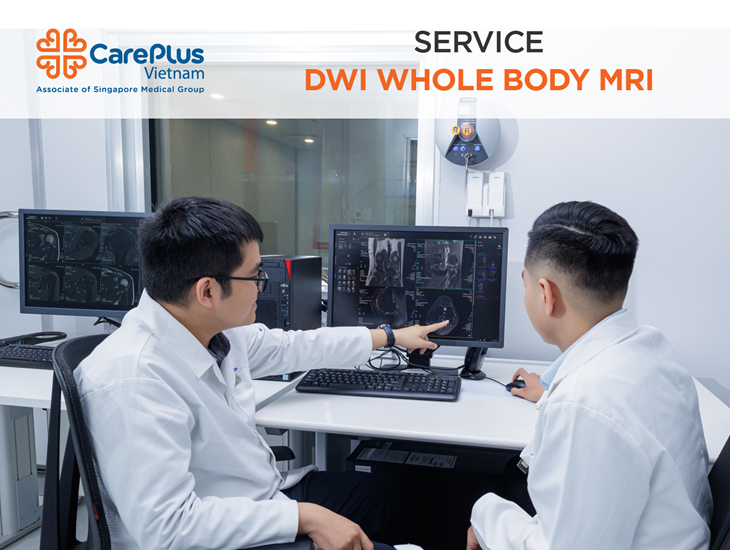DWI whole body MRI

What is Whole-Body MRI?
Whole-body MRI (Magnetic Resonance Imaging) is an advanced imaging technique designed to capture detailed images of key structures in the body in a single scan. This non-invasive method does not use radiation, providing a comprehensive view of the body’s organs and tissues. It is a crucial tool for early detection, diagnosis, and monitoring of various medical conditions.
Whole-body MRI employs magnetic fields and radio waves to generate high-resolution 3D images of the body. Unlike X-rays or CT scans, it does not use ionizing radiation, ensuring safety for patients, even with repeated scans.
This technique surveys critical areas such as the brain, spine, thoracic and abdominal organs, pelvis, and major musculoskeletal structures. Additionally, specialized sequences can assess vascular structures without the need for contrast injection. With its ability to examine the entire body, whole-body MRI can detect multiple pathologies without requiring complex or invasive tests.
Purposes of Whole-Body MRI
- Early Cancer Screening: Suitable for individuals at high risk, such as those with a family history of cancer or genetic syndromes (e.g., Li-Fraumeni syndrome, BRCA mutations).
- Cancer Recurrence Monitoring: For patients post-treatment, to detect metastasis or recurrence at an early stage.
- Comprehensive Assessment of Chronic Diseases: Helps identify organ damage (liver, kidney, heart, bones, brain) in chronic or systemic conditions.
- General Health Screening: For individuals seeking a full-body evaluation to detect abnormalities before symptoms arise.
- Candidates for Whole-Body MRI
Whole-body MRI may be recommended for the following
- Individuals at high risk of cancer due to genetic factors or family history.
- Patients undergoing cancer treatment or in remission, for recurrence monitoring.
- Individuals with chronic or systemic diseases requiring a comprehensive health evaluation.
- Those seeking early detection of potential conditions before symptoms manifest.
Advantages of Whole-Body MRI
- Non-Invasive and Radiation-Free: Unlike X-rays or CT scans, MRI uses no ionizing radiation, ensuring a high level of safety. This makes it a preferred technique for health screening, even for healthy individuals.
- High Diagnostic Value: Whole-body MRI provides high-contrast, detailed anatomical images, which can be reconstructed into 3D models. It detects abnormalities, injuries, or tumors, including those in their early stages.
- Early Detection: Identifies abnormalities before symptoms develop, enabling timely and effective treatment.
- Comfortable and Safe: The non-invasive nature of the procedure is well-tolerated by most patients.
WHOLE BODY MRI SCAN
- Brain MRI
- Pelvic MRI for Uterus| Ovary (For Woman) | Prostate (For Men)
- Abdominal MRI - Liver| Gallbladder| Pancreas| Kidney
- Full Spine MRI
- Bilateral Hip Bones and Pelvis Bone Screening MRI
- DWI whole body MRI